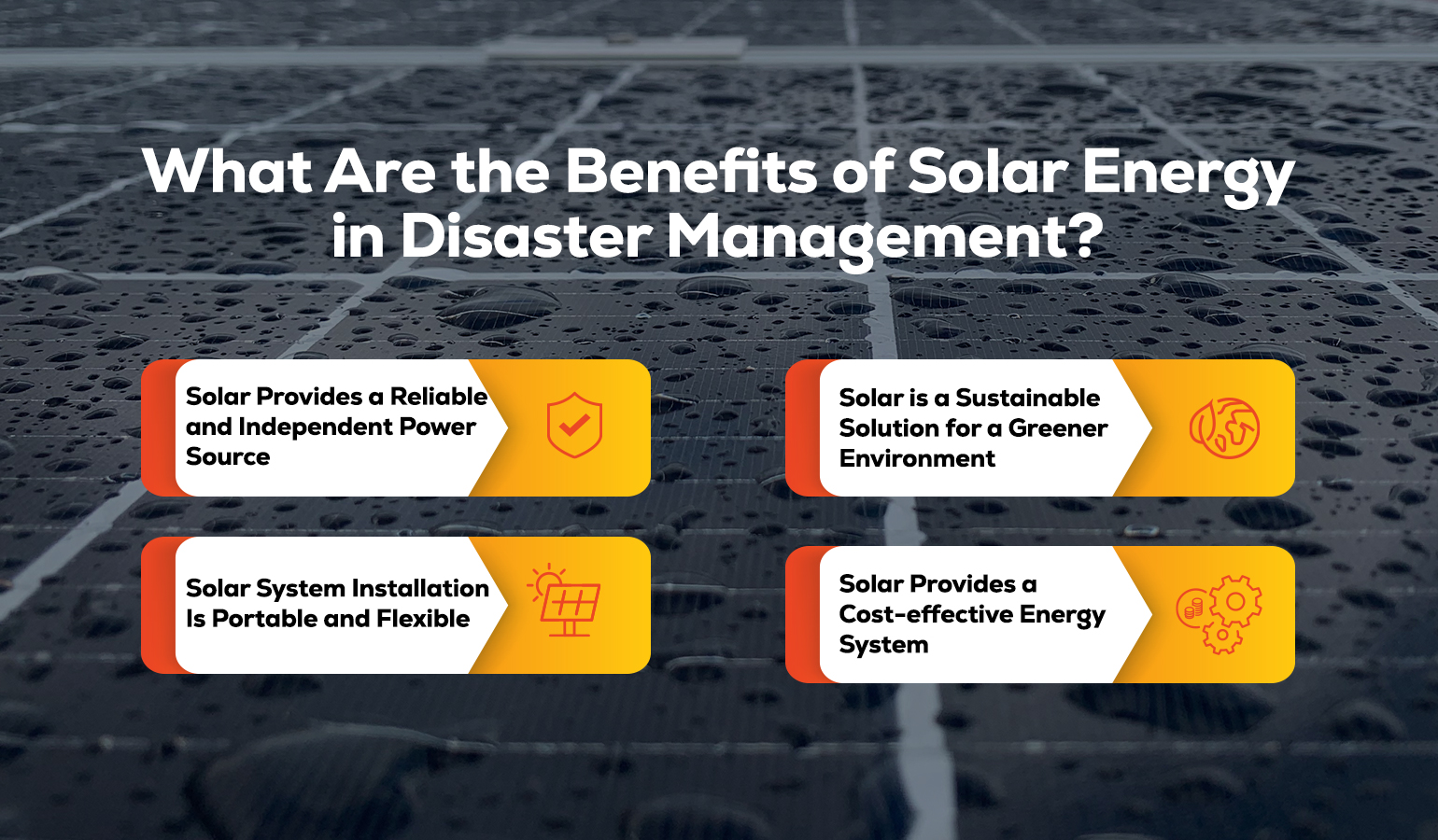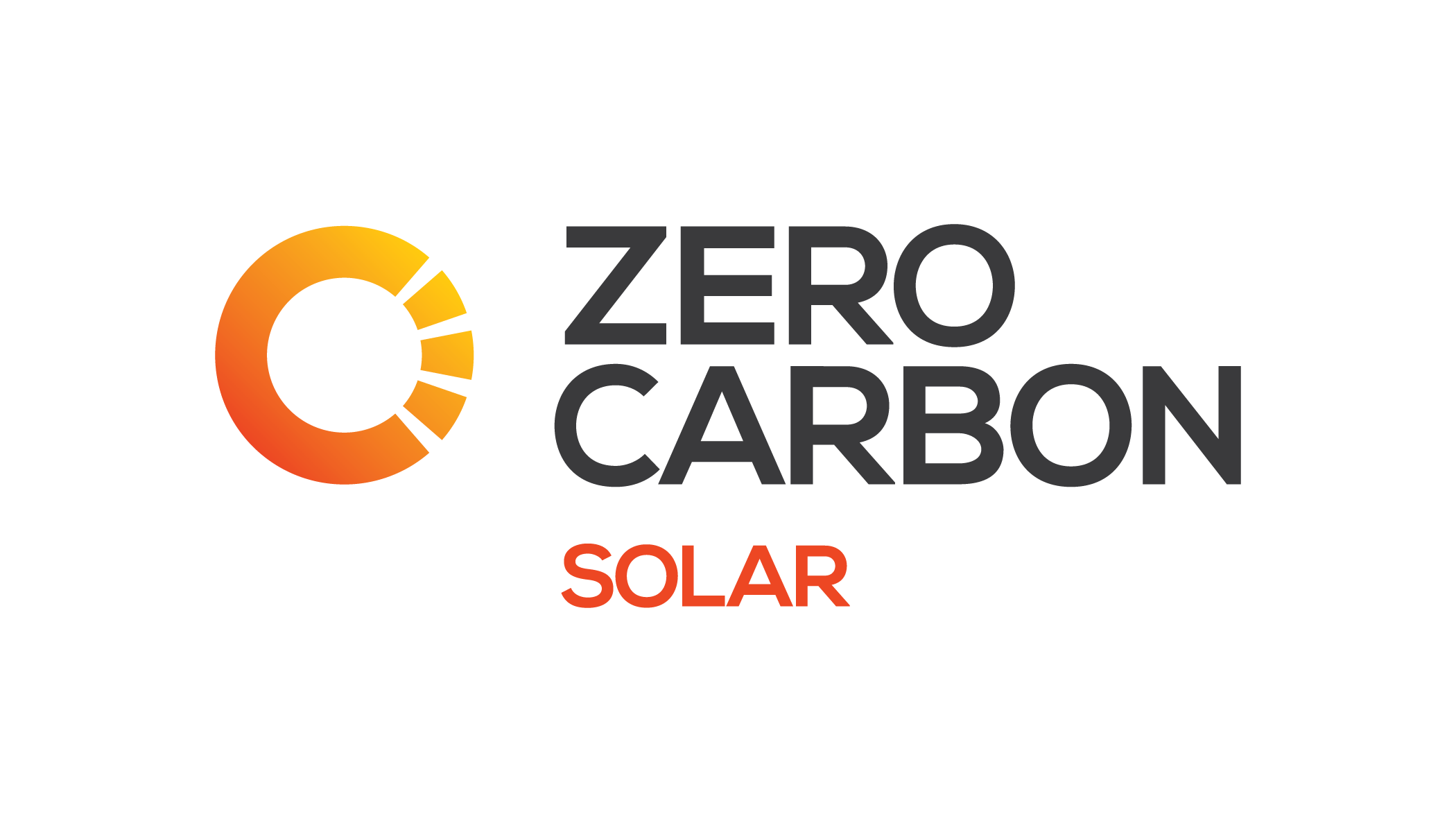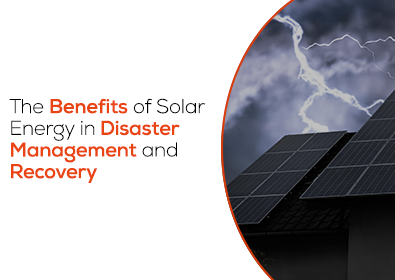Pakistan is a nation of diverse landscapes and climates. Hence, the country faces the constant threat of natural disasters. From earthquakes to floods and extreme weather events, its geographical location makes Pakistan to be particularly vulnerable. Accordingly, a reliable power supply becomes a lifeline for affected communities in times of crisis. This is where solar energy comes up as hope in disaster relief and emergencies in Pakistan. In fact, there are numerous benefits of solar energy in disaster management and long-term recovery initiatives. So, let’s explore how solar energy contributes to areas affected by natural disasters!
Pakistan’s Disaster Profile
Regret to say that Pakistan’s vulnerability to disasters is a harsh reality we must accept. We can see how floods displace millions and damage essential utilities during monsoon seasons. Also, the country is not safe from the possibility of earthquakes striking with devastating force. Hence, leaving infrastructure in ruins. With these frequent climate anomalies, Pakistan needs a dependable power supply. This is where solar energy comes in as a saviour.
What Makes Solar Energy a Viable Solution in Pakistan?
Sunlight is abundant throughout the year in Pakistan. Furthermore, this natural resource holds great potential for powering the country, especially during emergencies. In this context, solar panels harness sunlight and convert it into electricity. According to the World Bank, Pakistan can meet the demand for electricity in the country by using 0.071% of the area for solar PV power generation.
In addition, we can easily set up solar panels in remote areas as a perfect fit for areas affected by natural disasters. With its reliability and customisable capabilities, solar energy is an ideal solution when traditional power sources fluctuate. This means that when more people use solar power systems, they will need less electricity from the grid. In return, there will be less burden on the grid.
In addition to this, solar energy is a sustainable and environmentally friendly option for emergency power. Why?
Because it does not produce harmful emissions or rely on fossil fuels. This way, solar energy is a safer and more sustainable alternative to traditional generators. Even better, solar panels have a long lifespan and require little maintenance. Ultimately, it will be a cost-effective solution for disaster management and emergency power.
What Are the Benefits of Solar Energy in Disaster Management and Recovery?
Along with technological advancements, solar energy plays a vital role in disaster management and recovery. Most importantly, the benefits of solar energy in disaster relief are priceless.
Let’s have a look!

Solar Panels – A Game-Changer in Disaster Recovery
Solar energy is a game changer that contributes to regaining normalcy in areas affected by natural disasters. So, solar provides a reliable and independent power source that can operate even when the electric grid fails. As a result, it allows emergency services to function efficiently for disaster recovery. Ultimately, solar energy facilitates various operations like communication, medical services, and clean water delivery.
Solar System Installation Is Portable and Flexible
Solar system installation can be easily done even in disaster-stricken areas. Better yet, this portable solution comes with quick and efficient deployment to provide power. Moreover, solar energy systems are flexible to meet diverse needs, from charging mobile devices to powering heavy machinery.
Sustainable Solution for a Greener Environment
One of the great benefits of solar energy in disaster recovery is that it reduces reliance on fossil fuels. Therefore, solar panels help in promoting a cleaner and greener environment. In the end, the use of renewable solar energy sources contributes to a sustainable recovery process while minimizing harm to the planet.
Solar Provides a Cost-effective Energy System
In recent years, the cost of solar energy systems has significantly decreased in Pakistan. Even better, the Pakistan Government has launched incentives and policies for solar system installations. Thus, this affordability factor makes solar energy an attractive option for disaster management and recovery. Simply put, it provides a cost-effective alternative to traditional power sources.
Bottom Line
In summary, we cannot ignore the benefits of solar energy for Pakistan in disaster management and recovery. The solar panels provide a reliable and sustainable source of electricity in times of crisis. Moreover, the flexibility, ease of installation, and sustainable nature of solar energy make it an ideal solution for providing power to communities in areas affected by natural disasters. For the best option, Zero Carbon provides cost-effective solar system installations to help disaster management and recovery. So, get an accurate quote within 3 to 5 days from Zero Carbon by filling in a request quote form here!




